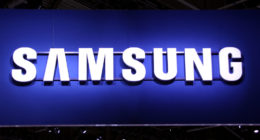Just under a month ago, we saw Uber, Google, Lyft, Volvo and Ford join hands and form a coalition called The Self-Driving Coalition for Safer Streets with the singular goal to bring the vision of self-driving vehicles to America’s roads and highways.
We had already seen most of these giants test their self-driving vehicles. Although late in the game, Uber has confirmed today that it is now testing its own technology on the streets of Pittsburgh.
The car, a hybrid Ford Fusion, being testing has been developed by Uber’s Advanced Technologies Center (ATC) in Pittsburgh. This will be roaming the streets of the city collecting mapping data as well as testing its self-driving capabilities. All the while, a trained driver will be behind the wheel, monitoring the whole affair.
The company acknowledged the fact that the technology in is still in its infancy. But it is confident that every step from here on will lead to massive improvements. The focus of the company is currently making sure the technology works as required and that its safe for anyone and everyone including pedestrians, cyclists and other drivers. This was the one of the major aims of the coalition formed between the tech and auto giants. Uber says that it has informed local officials and law enforcement about the testing and has received a positive response.
From the first steel mills to the laboratories at Pitt and Carnegie Mellon, Pittsburgh has a long history of innovation. Now we’re taking another step forward, this time as home to Uber’s Advanced Technologies Center, where some of the world’s leading innovators are helping to shape the future of transportation.
We’re excited that Uber has chosen the Steel City as they explore new technologies that can improve people’s lives — through increased road safety, less congestion, and more efficient and smarter cities.
says William Peduto, Mayor of Pittsburgh.
Uber, just like every other company working on self-driving cars technology, strongly believes that millions of lives can be saved when this approach gets mass implementation. According to the company, 1.3 million people die every year in car accidents and 94% of those accidents involve human error. With the machine overriding this, Uber believes there’s a lot less chance of such an event occurring.
The company’s latest self-driving car works by using a variety of sensors including radars, laser scanners, and high resolution cameras to map details of the environment. This, overall, allows the car to sense 100 meters in every direction.
A legislation for self-driving cars ready as early as July, according to the National Highway Traffic Safety Administration. But Uber’s tech is still a little way off, so it will be a while till we see Uber cars running around on their own.





